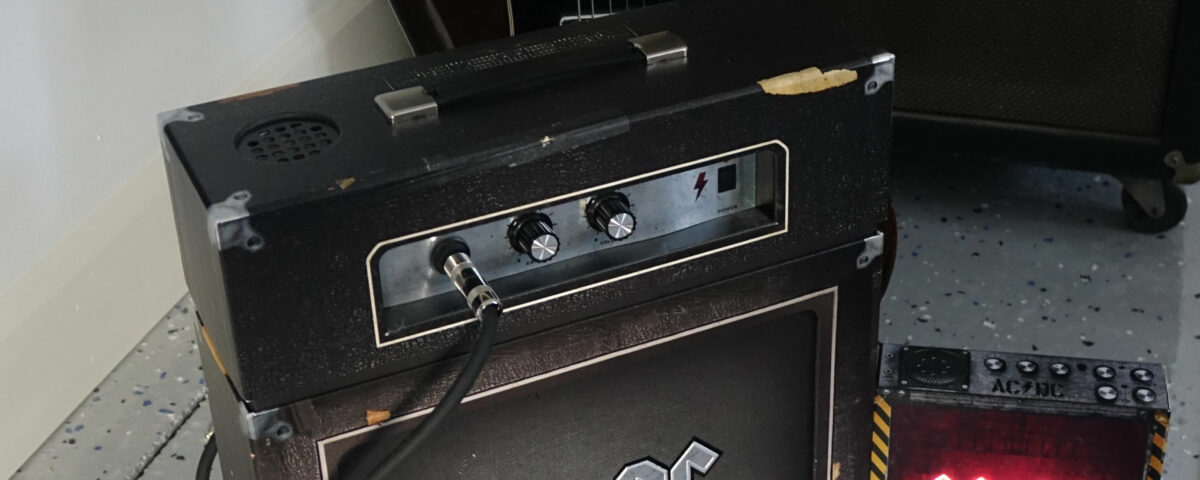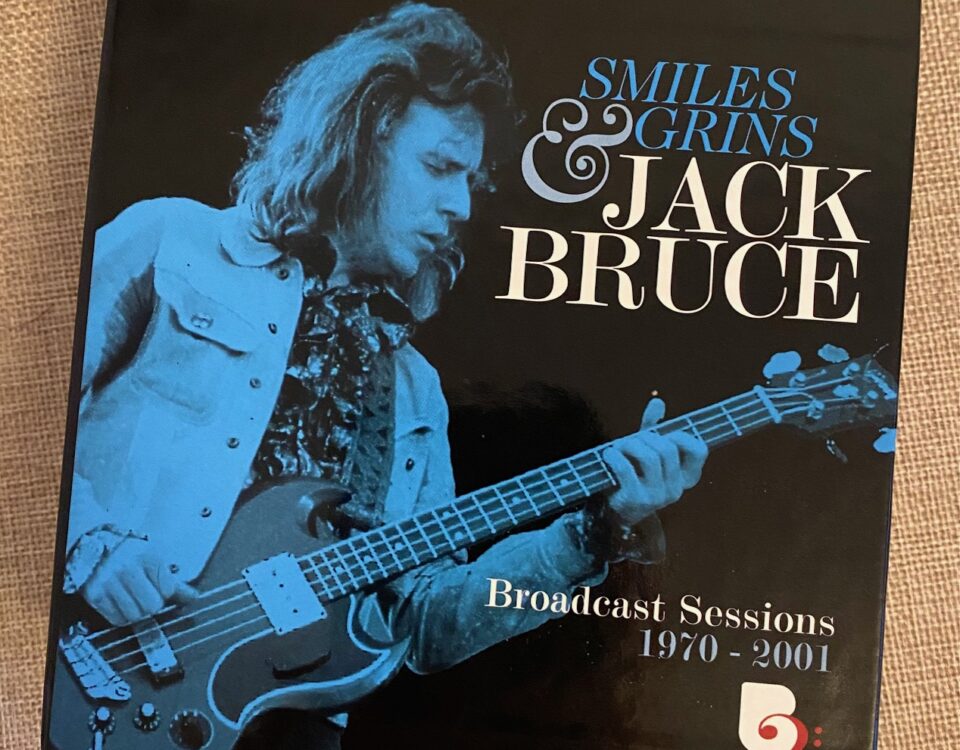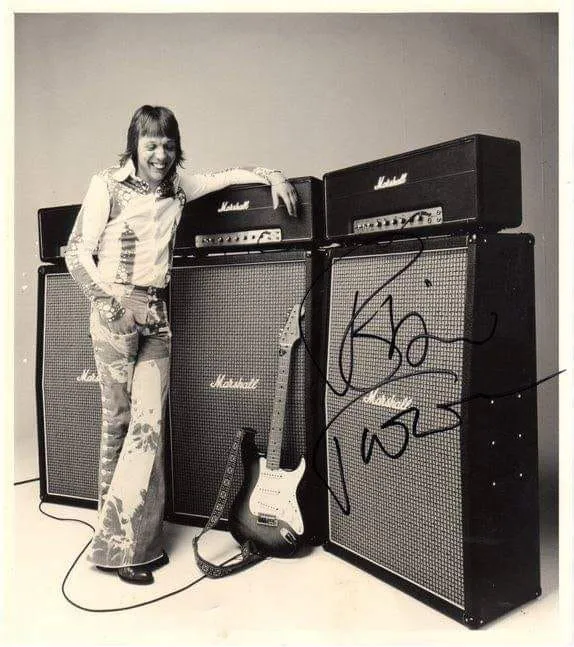AC/DC Powers Up Toward a Year’s Best

See dark shadows on the walls
See the pictures
Some hang, some fall
And the painted faces all in a line…
Hear the whisper
Of the whirlwind
Monster shadows
A light gone dim
Dark horses
Roam in my sleep
Mystic voices
Conjure up our dreams…
Through the mists of time
The mists of time
Of the restless kind
Through the mists of time
No, those ominous lyrics are not the product of a band like Dead Can Dance or The Cure or New Order. Rather, they are extracted from the unsettling tale told in “Through the Mists of Time,” the musical centerpiece of the new AC/DC album, Power Up, one simply dedicated with the acknowledgement, “This one’s for Mal…” The songs of this album are not new compositions; rather they are pieces written by the band’s long-time songwriters, Angus Young and his brother, the late Malcolm Young, before the dementia that eventually took his life robbed him of the ability to write for and play in the band he founded with Angus in 1973. And while AC/DC is justifiably known for a catalog populated with leering puns and suggestive song titles, listening to songs like this and “Rock ‘n’ Roll Dream” from Black Ice (which lyrically read more like a nightmare than a dream: “Circle sharks down and around, Deep water all around, ’round, ’round, Circle sharks all about you, You come up and you don’t know why”) leaves you wondering if Malcolm didn’t feel the need to express a deeper truth as his world closed in on him.

The boys in the band return, in a raucous, thunderous, and sometimes touching tribute to a fallen comrade.
“Through the Mists of Time” launches with a typically firm beat foundation, yet it’s off “the 1,” yielding an immediate quirk. Brian Johnson then proceeds to sing the song like he’s confronting these visions in terror, fighting what he sees while a moving, descending chord pattern unfolds into the song’s haunting chorus.

Long innovators in the realm of creative packaging, a special edition of Power Up intensely flashes while the sounds of “Shot in the Dark” fill the air. The lightbox is pictured with an earlier AC/DC rarity, a massive box set that is also a functioning guitar amplifier.
Similar indications of a new creative spark for AC/DC are evident from the opening track of Power Up, “Realize.” Of course, subtly shifting rhythm guitar cadences are on sonic display, seemingly minor changes that somehow translate into tectonic musical shifts, a hallmark of AC/DC music for decades. But what is not characteristic are the wordless Gregorian background vocals, hovering eerily over the builds to and throughout the song’s choruses, framing Angus’ short but surging double-strum solo. And certainly a different attitude is apparent in “Kick You When You’re Down,” sung from the viewpoint of the one being kicked.
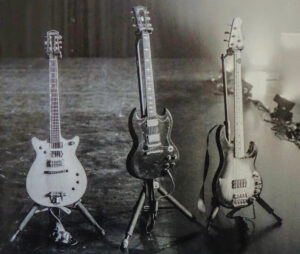
Tools of the trade, the very definition of “heavy machinery.”
Still, there is much to Power Up that is familiar in the best of ways, and it’s bracing to suddenly be reminded of just how strong this band is. “Shot in the Dark” offers an abundance of irresistible hard rock hooks, “Demon Fire” unleashes barely controlled pandemonium, while “Systems Down” communicates via crisp, interlocked guitar and bass in musical morse code.
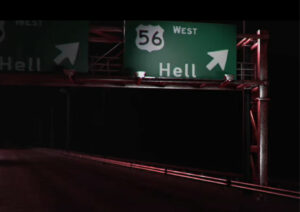
A highway exit long-familiar to AC/DC fans, as depicted in the new “Demon Fire” video from the Power Up album.
There is little that is musically tighter than the Phil Rudd and Cliff Williams rhythm section, totally locked down as though the bass and drums are a single instrument. The recording of the guitars as overseen by producer Brendan O’Brien yields surges of sparkling instrumentation depicted through forceful clarity. There is no sonic clutter, and AC/DC learned long ago that guitars on the verge of distortion can rock far harder than waves of mushy overdrive. Angus Young remains an underrated guitar hero in the ears of many stodgy critics, yet his tone and approaches are instantly identifiable as his alone. Malcolm’s nephew Stevie ably pummels out the riffs and progressions devised by his late uncle, and his dexterity is no surprise when you consider he grew up learning from Mal himself. Add in Brian Johnson’s sly vocals setting the lyrical stages and you have a band in existence in one lineup or another for nearly five decades still sitting at the very peak of the hard rock musical mountain.
And, as you can see by the reactions below, I am far from the only one welcoming the return of AC/DC.

